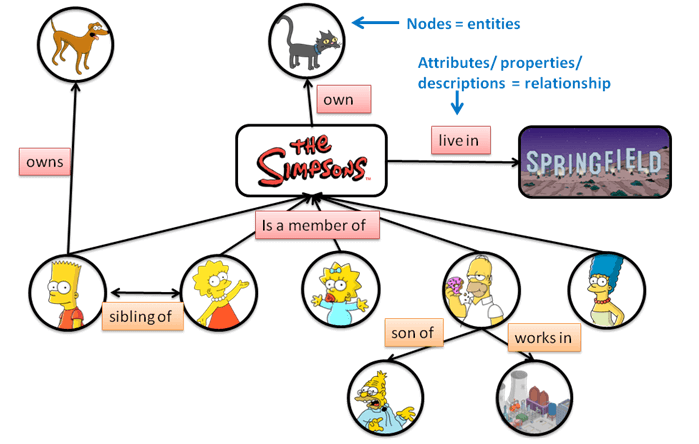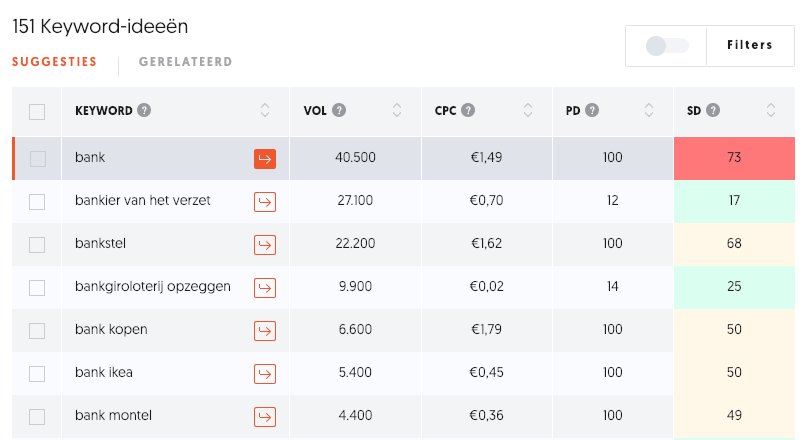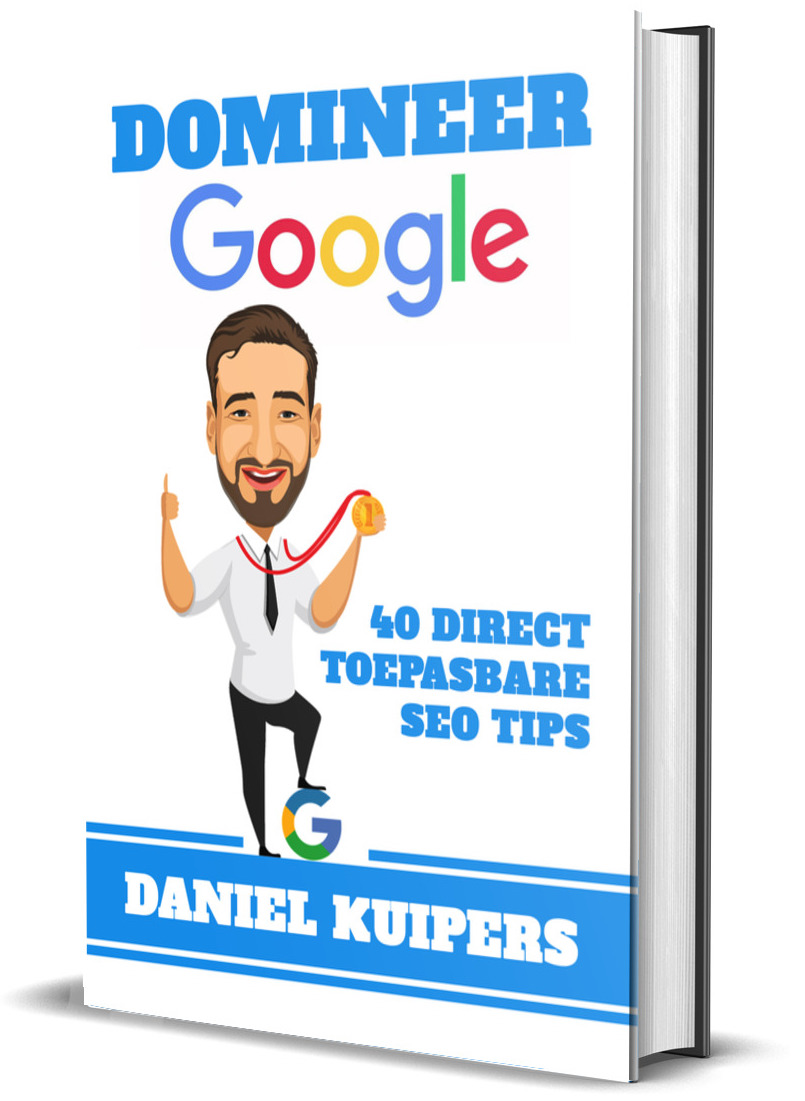Menu
Table of contents
Semantic search simply means that Google tries to present its users with the search results that best satisfy the intent with which a particular search term was entered.
For that, Google needs to understand exactly what web pages and their texts are about.
To do that well, Google must learn to understand the meaning of words and phrases.
And not just those of certain search terms.
No, also from the context in which they occur.
The algorithm has gotten pretty good at that by now, and it looks like that will only get better in the coming years.
Semantic search is the future.
So high time to take a look at how to make your SEO texts resistant to that future.

What does semantic search look like in practice?
Nice that semantic search, but a bit vague it remains.
Got it.
That's why I like to explain it to you using a simple example.
Suppose you write a page about banks, optimized for the keyword "bank.
To determine whether that page is about a financial institution or about seating, Google looks at the words and phrases that appear elsewhere on the page.
Soon it discovers words like "fabric," "padding" or "legs" there and decides that the page is about seating.
In short, Google uses context to determine whether a particular page meets the searcher's intent.
Simple as that.
Although in practice, of course, it goes quite a few steps further.
In fact, Google has a huge database of combinations of words with which it can make associations.
Therefore, the algorithm will view the word "bank" as a kind of entity, directly associating it with certain properties, descriptions and contexts.
After all, some specific terms with in combination with the word "bank" are more common on the Internet and thus will be relevant.
So, the trick is to find those words and terms so that you can paint a complete and relevant picture of your topic for Google as well as for your visitors.
Before we go any further, I want to show you an image.
The image below created by Moz about The Simpsons and semantic search also explains the principle incredibly well.

Bron: https://moz.com/blog/what-is-semantic-search
But how do you optimize for semantic search?
Very briefly, by discovering the relevant context and addressing it in your text.
As complete as possible (but relevant).
Because users love content that answers all their questions.
Content in which they can find everything they want to know.
And because Google wants to give its users exactly what they are looking for, Google also likes that complete content.
Okay, but where do you start?
We begin by creating a word cloud or word cloud.
Or just a (long) list of relevant terms that we can work into the text to provide more context.
This is because it provides guidance while writing your text.
You can refer back to it every time you are at a loss for what to talk about.
To do this, we start with a keyword research.
Because even though the search terms may ultimately matter less, we do need a broad keyword to expose its relevant context.
And then how do you find that context?
A first step for finding that context and the associated, semantically related terms, consists of noting all the relevant long-tail variants of that keyword.
Longtail variants are all kinds of search terms consisting of your original keyword with some additional words that specify the searcher's intent.
Consider the keyword "bank.
Longtails of these could be "orange leather sofa," "sofa with buttons and gilded legs," or "big sofa for the office that you can plop down in during breaks" or...
Anyway, you get the idea.
You can find those word combinations with tools such as KWFinder, Keywordtool.io or Ubersuggest.
Enter your keyword there and they will return you a list with quite a few suggestions.

Screenshot Ubersuggest 'Bank'.
And do you want to know what questions people are asking about your keyword?
Then check answerthepublic.com.
That bundles it all together for you.
Write down everything relevant to the searchers you intend to serve with your content.
Learn more about long-tail keywords and how to find them here.
Is that all?
Nope.
To optimize for semantic search, we still need to find the relevant terms that are semantically related to the original search term, but do not literally have that keyword in them.
Synonyms, for example.
But you can also think of subtopics or subtopics.
Case in point: in a text about "online marketing," it is likely that it will (also) cover topics such as "website," "seo," "social media," "content," "email" and so on.
Often a little common sense goes a long way, but with Latent Semantic Indexing you can find even more semantically related terms.
Latent Semantic ... what?
Latent Semantic Indexing, or LSI for short.
It is a statistical method of analyzing a text to reveal patterns and relationships between words.
In doing so, you will discover related terms and combinations of words that you had forgotten or hadn't even thought of at all.
Fortunately, there are a number of (free) LSI tools that can perform that analysis by keyword for you and give you an idea of the words associated with your search term.
For example, Niche Laboratory and KeySearch's LSI Keywords Generator give you a number of terms and phrases that are semantically related to your initial keyword.
Again, note the relevant (!) terms here.

And now?
Now you should have a long list of long-tail variants of your search term, queries, synonyms and semantically related words and phrases.
Group them and put the terms that match together.
Using that list of grouped terms (read: subtopics), you can write new texts that fully cover the topic.
Or, of course, you check if your current texts are complete enough ... or if you can add a few more paragraphs to optimize your texts for semantic search.
I look forward to seeing the results!
Let me know in the comments (also if you have any questions or comments, of course!).












2 Responses to "Semantic search: how to optimize content for semantic search?"
Nice article!!! I myself am beginning online marketer so this information is more than welcome! Very interesting blog! Thanks and keep it up!
Thanks for the nice words. I try my best to share as much concrete information about online marketing as possible. In doing so, I also have a tip for you: think about the SSL certificate, it seems to have expired within your website. Good luck with finding your way within online marketing.